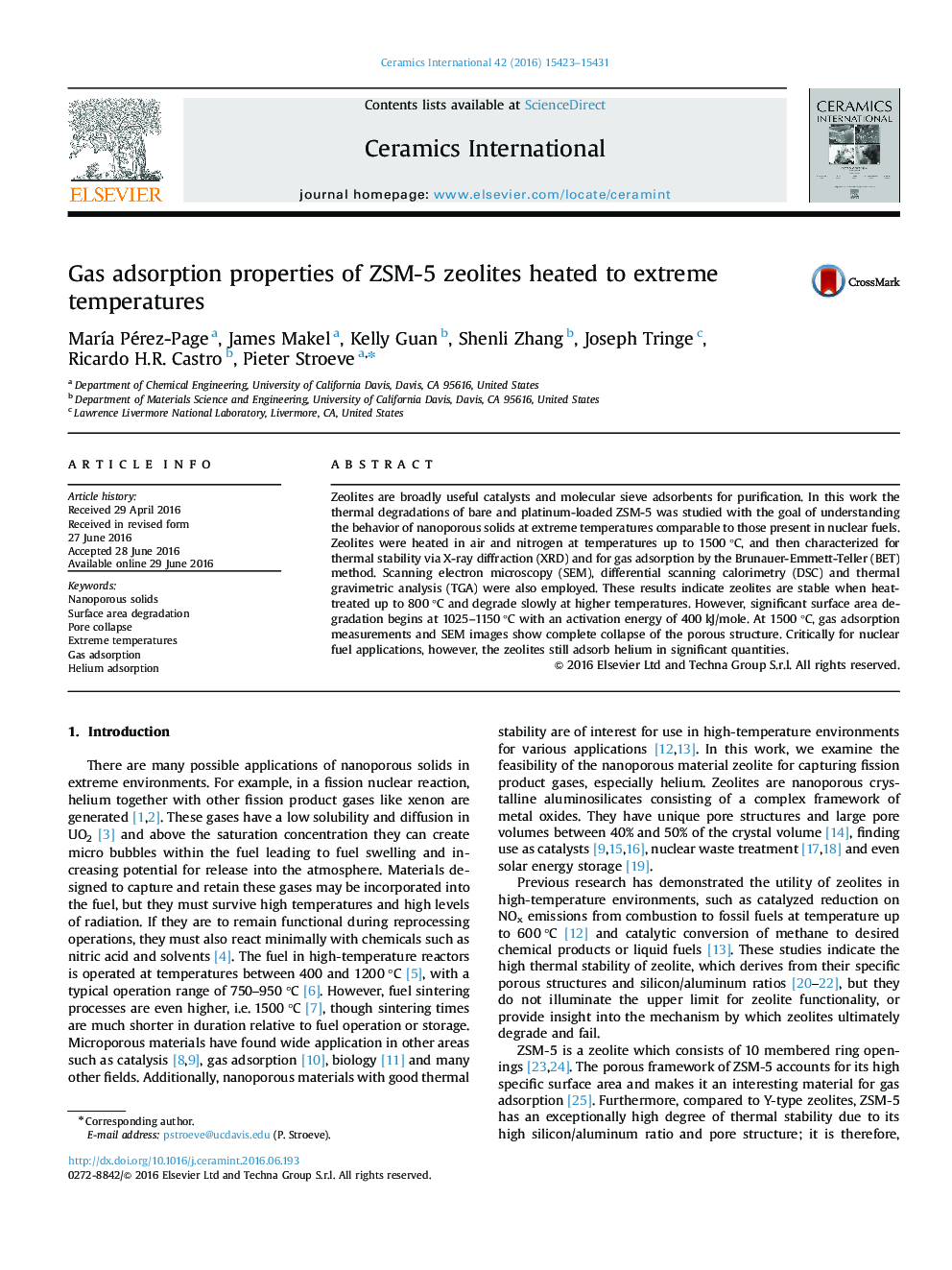| Article ID | Journal | Published Year | Pages | File Type |
|---|---|---|---|---|
| 1458421 | Ceramics International | 2016 | 9 Pages |
Zeolites are broadly useful catalysts and molecular sieve adsorbents for purification. In this work the thermal degradations of bare and platinum-loaded ZSM-5 was studied with the goal of understanding the behavior of nanoporous solids at extreme temperatures comparable to those present in nuclear fuels. Zeolites were heated in air and nitrogen at temperatures up to 1500 °C, and then characterized for thermal stability via X-ray diffraction (XRD) and for gas adsorption by the Brunauer-Emmett-Teller (BET) method. Scanning electron microscopy (SEM), differential scanning calorimetry (DSC) and thermal gravimetric analysis (TGA) were also employed. These results indicate zeolites are stable when heat-treated up to 800 °C and degrade slowly at higher temperatures. However, significant surface area degradation begins at 1025–1150 °C with an activation energy of 400 kJ/mole. At 1500 °C, gas adsorption measurements and SEM images show complete collapse of the porous structure. Critically for nuclear fuel applications, however, the zeolites still adsorb helium in significant quantities.
